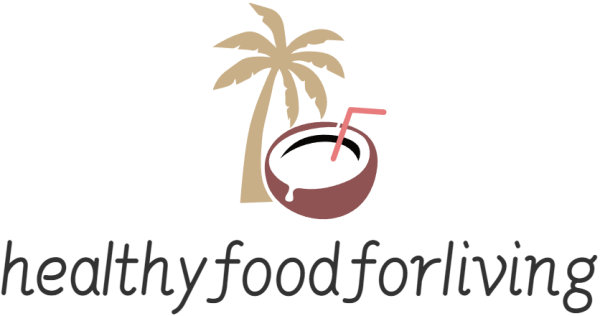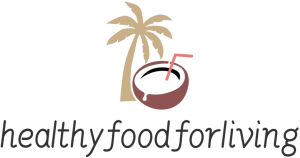In an era where health has taken center stage, having a strong immune system is crucial for overall well-being. While many factors influence our immune health, diet is one of the most impactful and controllable aspects. Making the right dietary adjustments can enhance your body’s ability to fend off illness, recover quickly, and maintain optimal function. Let’s dive into some practical and evidence-based dietary changes that can give your immune system the boost it needs.
The Immune System and Its Nutritional Needs
Your immune system is a complex network of cells, tissues, and organs that work together to defend against harmful pathogens like bacteria, viruses, and toxins. A robust immune system is not a product of a single nutrient but rather the collective contribution of various vitamins, minerals, and other dietary components. Deficiencies in essential nutrients can impair the immune response, leaving the body more vulnerable to infections.
Vitamins and Minerals: The Building Blocks of Immunity
Vitamin C is probably the most famous nutrient linked with immune support. It enhances the production and function of white blood cells, the body’s primary defense against infections. Vitamin C also acts as an antioxidant, protecting cells from the damage caused by free radicals. You can find this powerhouse vitamin in citrus fruits like oranges, lemons, and grapefruits, as well as in strawberries, spinach, bell peppers, and broccoli. Incorporating these foods into your daily diet can help ensure your body gets an adequate supply.
Vitamin D plays a pivotal role in regulating the immune system. It enhances the pathogen-fighting effects of white blood cells and decreases inflammation. Unlike most vitamins, vitamin D is primarily produced in the skin in response to sunlight. However, with modern lifestyles keeping us indoors more often, many people are deficient. Foods like fatty fish (salmon, mackerel), fortified dairy products, and egg yolks are great sources of vitamin D. For those who struggle to get enough through sunlight and diet, supplements can be an effective alternative.
Zinc is another critical mineral for immune health. It helps in the production of immune cells and is necessary for their proper function. Zinc deficiency can result in a weakened immune response, making the body more susceptible to infections. Foods rich in zinc include meat, shellfish, seeds, nuts, beans, and whole grains. Including a moderate amount of these foods in your diet can support immune health.
Selenium, though required in small amounts, has powerful effects on the immune system. It is an antioxidant that helps lower oxidative stress in the body, reducing inflammation and enhancing immunity. Brazil nuts, fish, and eggs are excellent sources of selenium. Including these in your diet a few times a week can be beneficial.
Gut Health and Immunity
The gut is a critical player in immune health. A large portion of the immune system resides in the gut, where beneficial bacteria help modulate the body’s immune response. Incorporating probiotics—live beneficial bacteria found in certain foods—into your diet can promote a healthy gut flora balance, which in turn supports overall immune health.
Probiotic-rich foods include yogurt, kefir, sauerkraut, kimchi, and miso. Regularly consuming these foods can enhance gut health, aiding in the production of immune cells and improving their ability to fight pathogens. Alongside probiotics, incorporating prebiotics, which are fibers that feed beneficial bacteria, is also important. Foods like garlic, onions, bananas, oats, and asparagus are great sources of prebiotics.
Reducing Inflammation with Anti-Inflammatory Foods
Chronic inflammation can weaken the immune system, making the body more prone to illnesses. Adjusting your diet to include anti-inflammatory foods can help counteract this effect and keep your immune system in balance.
Omega-3 fatty acids found in fatty fish (like salmon, mackerel, and sardines), flaxseeds, chia seeds, and walnuts have been shown to reduce inflammation. Incorporating these foods into your meals a few times a week can provide the necessary nutrients to keep inflammation in check.
Berries, such as blueberries, strawberries, and raspberries, are rich in antioxidants called flavonoids. These compounds help neutralize free radicals and reduce inflammation. Including a variety of colorful fruits and vegetables in your daily diet can help supply a broad range of these beneficial antioxidants.
Herbs and Spices: Natural Immune Boosters
Certain herbs and spices have been used for centuries for their immune-boosting properties. Garlic, for example, contains compounds like allicin, which have antiviral and antibacterial effects. Including garlic in your meals not only adds flavor but also supports your immune system. Similarly, ginger has anti-inflammatory and antioxidant properties that can enhance immune function. Adding ginger to teas, smoothies, or meals can provide a simple and tasty way to boost your immunity.
Turmeric, with its active compound curcumin, has potent anti-inflammatory effects. Consuming turmeric regularly can help reduce chronic inflammation and support immune health. To maximize the absorption of curcumin, pair turmeric with black pepper, which contains piperine, a compound that enhances curcumin absorption.
Limiting Sugar and Processed Foods
Excessive sugar and processed foods can impair immune function by causing inflammation and reducing the efficiency of white blood cells. High sugar intake can suppress the immune system for hours after consumption, making it easier for infections to take hold. Limiting sugary drinks, sweets, and highly processed foods while focusing on whole, nutrient-dense options can significantly benefit immune health.
Hydration and Its Impact on Immunity
Water is often overlooked in discussions about immune health, but staying adequately hydrated is crucial for maintaining a well-functioning immune system. Proper hydration ensures that blood and lymph circulate effectively, allowing immune cells to travel throughout the body to where they are needed most. Aim to drink plenty of water daily, and include hydrating foods like cucumbers, oranges, and watermelon.
Putting It All Together: Creating an Immune-Boosting Diet Plan
To give your immune system the best support, aim for a balanced and varied diet rich in fruits, vegetables, lean proteins, whole grains, and healthy fats. Include a daily serving of foods rich in vitamins and minerals such as citrus fruits, leafy greens, nuts, seeds, and seafood. Incorporate probiotic foods for gut health, and make anti-inflammatory foods like fatty fish and berries a regular part of your meals. Use herbs and spices like garlic, ginger, and turmeric in your cooking, and limit sugar and processed food intake. Finally, don’t forget the importance of hydration.









































